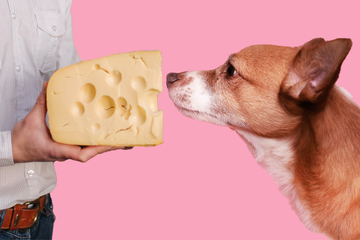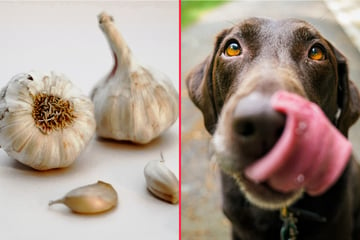Can dogs eat eggs?
Eggs are one of the most healthy sources of nutrients and protein out there, but that doesn't necessarily mean that they're good for dogs. Can dogs eat eggs, and if so, how should they be cooked?
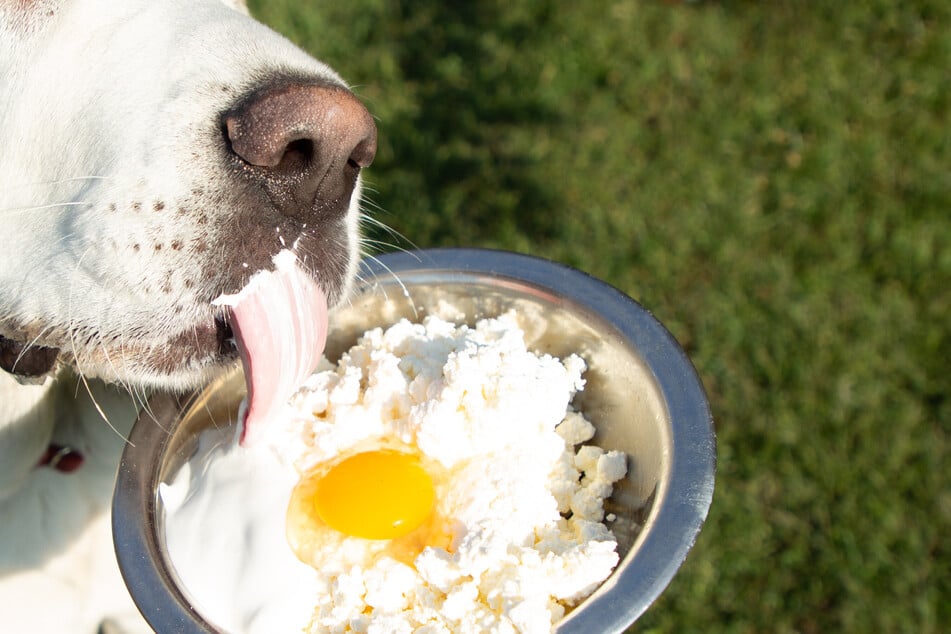
Few things are more satisfying than a good egg-based breakfast, complete with crispy bacon, and a good piece of toast.
Sadly for your doggo, though, such a feast is not really possible. That doesn't mean that your canine companion has to miss out on everything, though, does it?
Forget the bacon and forget the sourdough, the eggs are where it's at. Can dogs eat eggs, though, and if so, how should they be cooked or prepared?
Let's take a look at whether the food is really so egg-cellent for our four-legged friends.
Can dogs eat eggs?
Eggs are relatively safe for dogs if cooked in the right way, and even contain some pretty healthy vitamins and nutrients. While buttery scrambled eggs that have been smashed full of cheese and salt might not be ideal for our beloved dogs, there are other ways to serve eggs which are both safe and even a little bit healthy.
Chicken eggs can serve to provide our dogs with proteins, fatty acids, vitamins, and minerals as well as amino acids, and are therefore a nutrient-rich addition to the diet of a darling doggo. Highly nutritious, eggs can actually help to support a dog's health and metabolism, providing useful cell development and building muscles.
As always, though, this is all based on the assumption that they have been fed eggs in the right form and in small quantities. While eggs are healthy, they are not a natural food for dogs and should not be fed to them regularly.
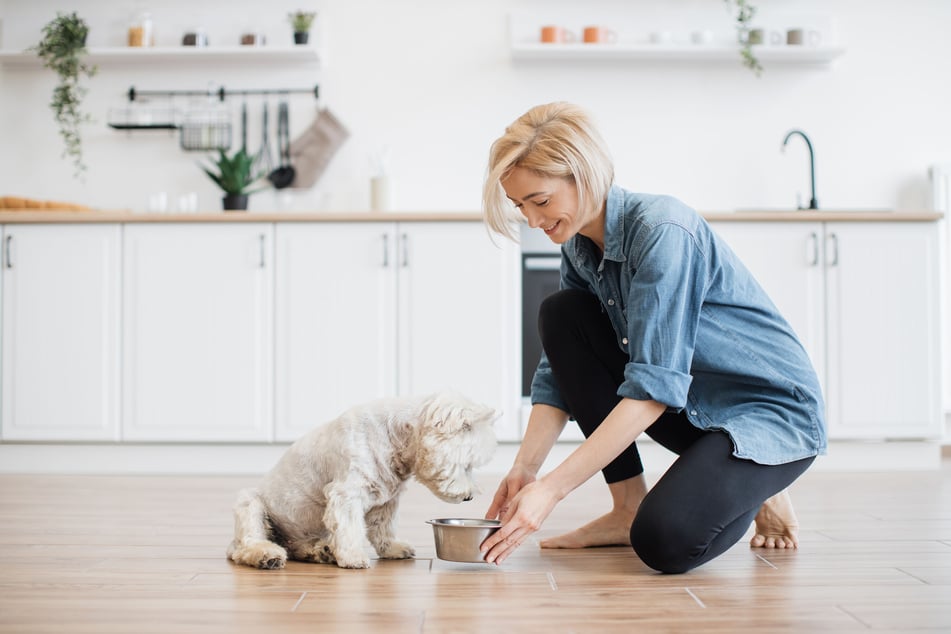
How should eggs be cooked for dogs: Scrambled, boiled, or fried?
The best way to serve egg to your dog is boiled or poached, as both have no embellishments. Fried eggs are saturated in oil and grease, and scrambled eggs are full of butter, seasonings, and all sorts of other ingredients that make them taste delicious, but also make them unhealthy.
Boiled and poached eggs should be prepared in pure water, with no salt (and in the case of poached eggs, no vinegar), and should be served alongside your doggo's normal food. You should make sure in the case of a boiled egg that all the shell has been thoroughly removed, as it can cut into pets' throats and give them stomach aches.
Of course, a tiny bit of fried egg or a spoonful of scrambled eggs is okay once in a blue moon, but it really should be very rare. Oil and fat can be very bad for dogs, and should be avoided whenever possible.
Can dogs eat raw eggs?
No, dogs should never eat raw eggs. When an egg is raw, there is always the potential for salmonella or other foodborne diseases, which can cause serious health problems. This is regardless of whether we're talking about the egg white or egg yolk, and should always be avoided.
If your dog has eaten some raw egg by accident, make sure to monitor it closely. Keep your veterinarian's number close and call if you are starting to get worried. It might seem like an overreaction, but something like salmonella can be intense for humans, let alone our darling doggos.
Keep in mind: Raw eggs are also found in dishes like carbonara. When using them for such things, make sure to use eggs that are deemed safe for raw consumption. Such eggs should still never be given to dogs.
How often can dogs eat eggs?
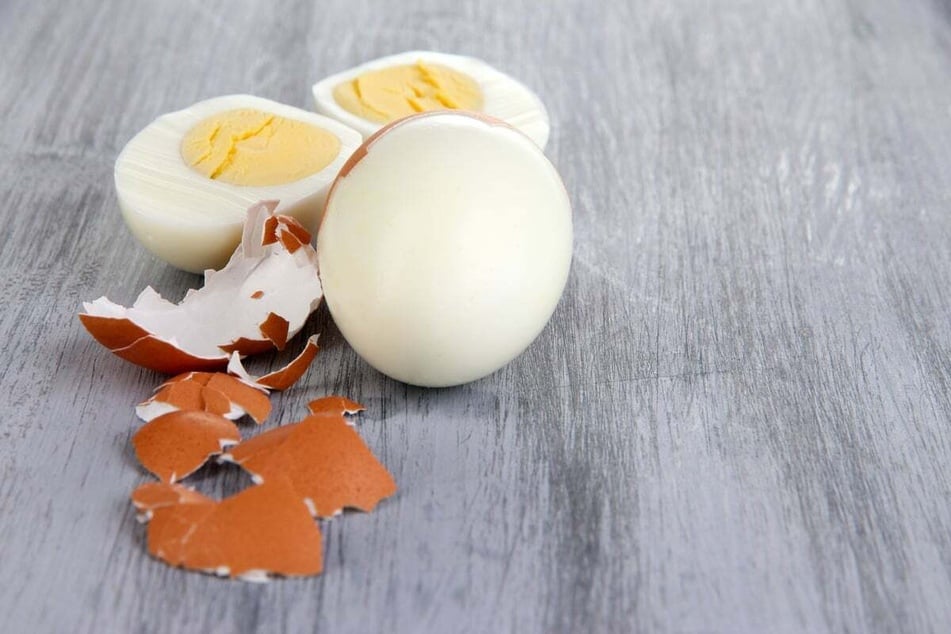
A dog can be given two eggs a week with no problem at all. In such a low quantity, they will simply provide your dog with healthy nutrients and proteins, and have no negative impact.
That being said, your dog should be getting all its necessary nutrients from the dog food you feed it - anything else should just be an extra little treat.
While there is nothing innately dangerous about an egg, because of its high levels of certain proteins and fats, too much could cause a problem with its weight and chemical balance. We would recommend simply avoiding making eggs a staple of your dog's diet and, instead, stick to professionally made dog food.
If you are concerned about your dog's egg intake, or its diet in general, get advice from your veterinarian. They will be able to help you develop a meal plan and keep your doggo healthy.
How many eggs can dogs eat?
When your dog is allowed to eat eggs, it should never have more than one at a time. As mentioned, a dog should really only have two at most every week. By giving it one at a time, that allows you two treats, rather than one overly large treat. If you really want to, giving it four half eggs throughout the week could also be okay.
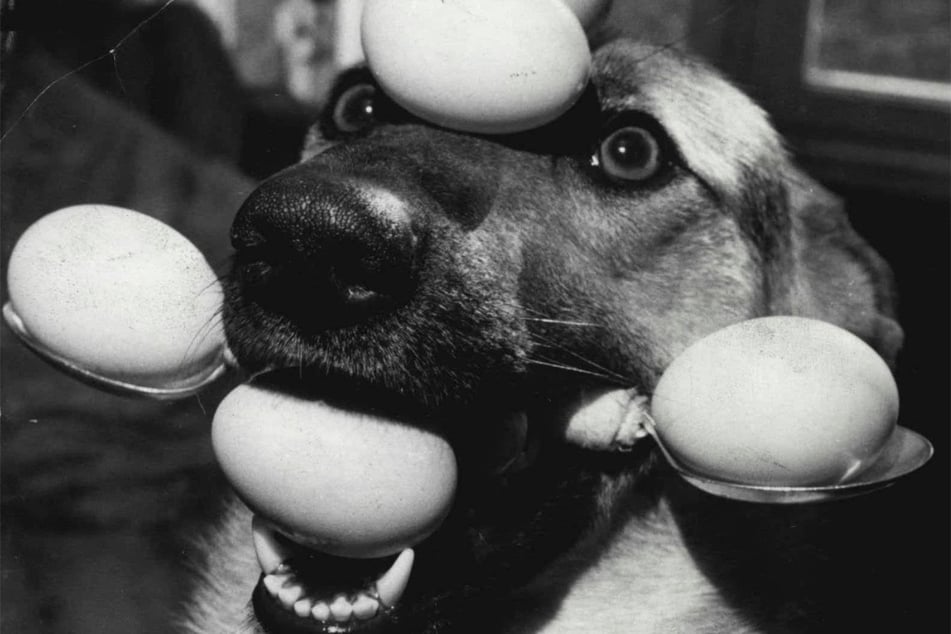
What kind of eggs can dogs eat?
It is strongly recommended that you stick to standard chicken eggs when giving them to your dog. While more exotic eggs like quail eggs and the like are generally safe, it's just best to keep things simple and not experiment with weird and wacky ingredients.
Dogs can eat eggs, but that doesn't mean they should
While it is perfectly okay for you to give your dog an egg – or a bit of egg – now and then, it shouldn't become a stable part of its diet. Dogs have very carefully designed and balanced diets that need to be abided by if you want your fluffy friend to remain happy and healthy for a long time.
As a result, don't add or remove anything from your dog's diet without the express permission and request of your veterinarian. Follow their advice, don't pretend to be an expert, and steer clear of giving your dog human food wherever possible.
Cover photo: 123RF/Kreminska

